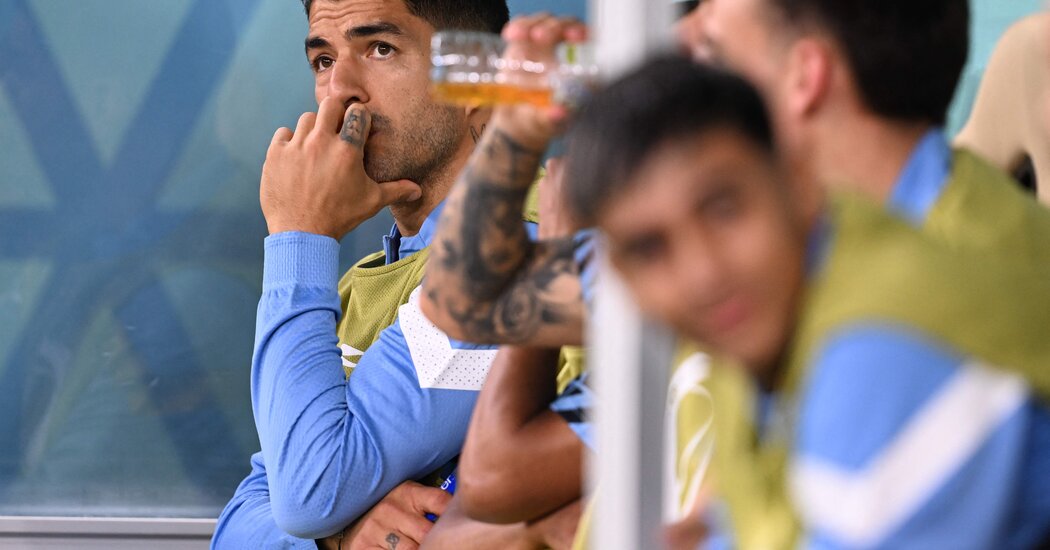Luis Suárez does not see why he should apologize. To some extent, he even seems surprised that anyone remembers. It is, after all, 12 years since the handball that broke Ghana’s hearts, that convinced an entire nation that the Uruguayan striker — in the words of a Ghanaian journalist hunting Thursday for some semblance of contrition — was “the devil himself.” Twelve years, as far as Suárez is concerned, is ancient history.
There are many reasons to malign Suárez. His racist abuse of Patrice Evra, for example. Or the time he bit Otman Bakkal while playing for Ajax. Or the time he bit Branislav Ivanovic while playing for Liverpool. Or the time he bit Giorgio Chiellini while playing for Uruguay. Suárez is not, it is fair to say, an easy player to love.
And it is only natural, too, that there should be some lingering resentment not only over that play in Johannesburg in 2010, when he swatted away a ball just as it was about to cross the goal line, depriving Ghana of what would have been a winning goal in a World Cup quarterfinal, but also because of the way he celebrated when Asamoah Gyan, the Ghana striker, missed the subsequent penalty. Suárez not only prevented an African nation from reaching the semifinals of a World Cup for the first time, but his glee in doing so was unconcealed.
And yet, strictly speaking, Suárez is right. He has no reason to apologize. “I took the handball, but the Ghana player missed the penalty, not me,” he said Thursday. “Maybe I would apologize if I injured a player in a tackle and got sent off, but in this situation, I took the red card, the referee said penalty. It’s not my responsibility to take the penalty. It’s not my fault.”
Suárez committed an offense and was suitably punished. That, to him, is the end of the matter.
In Ghana, it is fair to say, they see it a little differently. Gyan, for one, has admitted that he will be haunted by that missed penalty for years; there is, he said in an interview for a British radio station this week, genuine “hatred” for Suárez in his homeland.
The anger is not, most likely, at the morality of Suárez’s intervention; Gyan has said that he would have done the same had the roles been reversed, and doubtless the overwhelming majority of players would, too.
Likewise, Suárez’s celebration — just a little too frenzied not to look gauche, according to most observers — was perfectly understandable. He took a risk and it paid off: A half-hour later, Uruguay advanced to the semifinals on penalties, and missed a World Cup final only after a 3-2 loss to the Netherlands.
No, the reason Ghana remembers, the reason the country still feels it is owed an apology, is not what Suárez did but what it cost. It has always been harder for an African team to reach a World Cup semifinal than it is for a European team or, especially, a South American one. The continent’s 50 nations compete for just five spots at the tournament. The 10 countries of South America get four, as well as a shot at a playoff. The 53 members of UEFA squabble over 13 places.
To get within an inch of a World Cup semifinal, Ghana not only had to win a round of 16 game against the United States and qualify from a group containing Germany, Serbia and Australia, but it also had to endure three rounds of qualification. It had done all of that and then, at the last, just when it thought it had made it through, it was all snatched away. Suárez may not feel there is any reason for anyone to be seeking revenge when Uruguay and Ghana face each other on Friday, with a place in the knockouts of the 2022 tournament on the line. Ghana, though, does. It has been waiting for this. It will try to grasp it with both hands.
Sumber: www.nytimes.com
